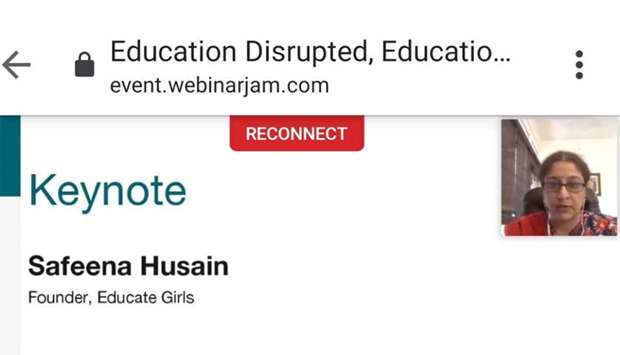While Covid-19 is creating several hurdles for girls’ education, poverty and patriarchy are already two major problems faced by girls’ education in several countries, an educationist told attendees at online education event on Wednesday.
Safeena Husain, founder of Educate Girls, India was speaking on the second day of the ‘Education Disrupted, Education Reimagined Series; Part II’ organised by World Innovation Summit for Education (WISE) in collaboration with Salzburg Global Seminar and HolonIQ.
“Vulnerable girls should be at the centre of new design in education in the post-Covid-19 scenario. Poverty and patriarchy are two major challenges for girl students in many countries for their education and in realising their real potential,” said Husian while delivering the keynote address at the forum.
According to Husain, Covid-19 has thrown up a number of challenges for this vulnerable category of students.
“Covid-19 has led to reverse migration and loss of job for millions of daily workers. This will lead to more poverty among these sections of the society. This crisis is going to widen the inequality in education and we need to take urgent steps to address the issue. During the Ebola crisis in Africa, the number of girl students going out of schools tripled resulting in wide disparity in the societies,” she explained.
The gender equality advocate argued that the drawback due to poverty and patriarchy in girls’ education can be overcome through recovery, release and reimagination of the education scenario.
"The recovery plan must include food distribution and awareness-building for children and social security plans for the most marginalised students. Steps must be taken to ensure that children attend school free of hunger and they must have access to nutritious food,” she said.
“There must be safety for the children in the schools especially for girl children. This must be monitored and implemented in true spirit that girls come back to schools when they are reopened. Another aspect to be looked at is the emotional wellbeing of the children. They must be provided psychosocial support, especially during times of lockdown. There must also be a balance between online and offline learning ,providing blended learning by reimaging the educational system,” she concluded.


